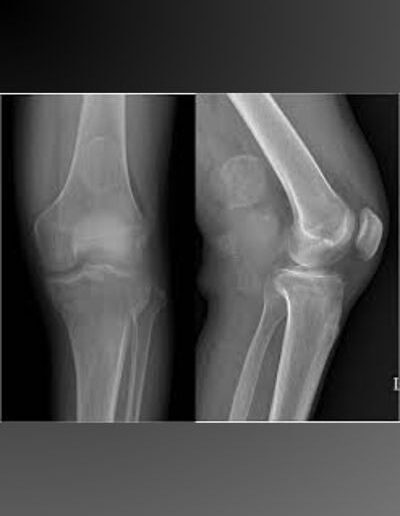
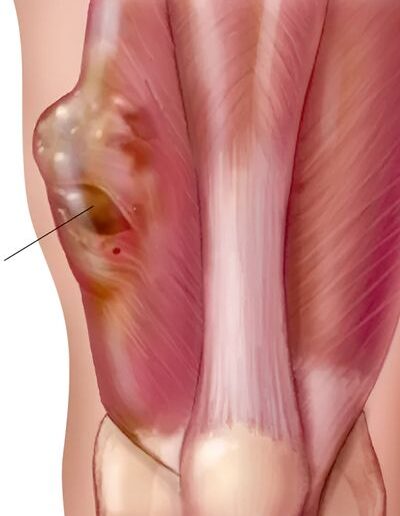
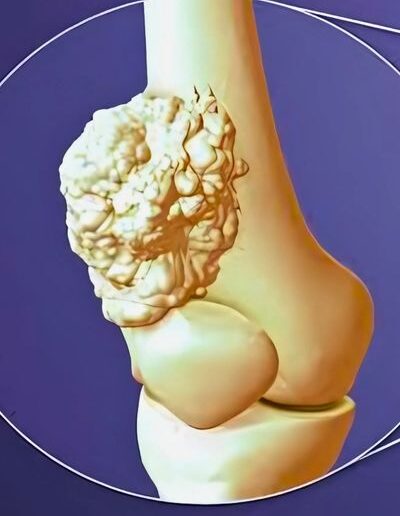
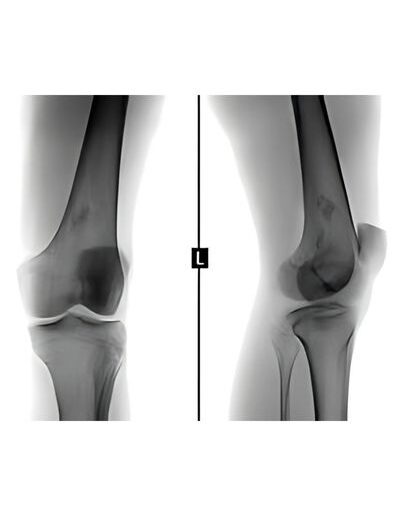


Benign (noncancerous) tumors are even more common than malignant tumors in the musculoskeletal system.
Common types of benign tumors include:
Benign bone tumors that are more aggressive, such as giant cell tumor or chondromyxoid fibromas, usually require surgery. In these cases, techniques such as synthetic bone graft substitutes are used to rebuild rather than remove bone. Drugs such as denosumab are also used to treat specific tumors. Dr. Vinod Dubey is a renowned bone and soft tissue tumor specialist in Thane, Mumbai, offering advanced care for both children and adults. With years of experience in diagnosing and treating benign and malignant tumors.
Common types of malignant bone tumors include:
More than one-third of bone sarcomas are diagnosed in patients under the age of 35 years old; many are diagnosed in children.
As opposed to primary bone sarcoma (cancer that starts in the bone), metastatic bone cancer starts in another location (such as an organ) and travels to the bone. This cancer comes in many forms, most often thyroid, lung, kidney, breast or prostate.
When a cancer from a distant organ spreads to the skeleton, it can create structural problems in the bone that may lead to greater pain and reduced functioning.
Benign soft tissue tumors are very common (fewer than 5% of all lumps or bumps discovered are cancerous). Many of these tumors can be monitored regularly, but some have to be removed by surgery. Some benign tumors, such as desmoid tumors, may require treatment from the medical oncology, radiation oncology or interventional radiology teams, all of which work closely together.
The most common types of benign soft tissue tumors include:
Soft tissue sarcomas begin in the muscle or other connective tissues of the body. Unlike bone tumors, most soft tissue sarcomas occur in adults, though certain types, such as rhabdomyosarcoma, are found mostly in children.
Some of the most common types of soft tissue sarcomas include:
The symptoms of sarcomas vary. For example, in their early stages, some sarcomas may not cause noticeable symptoms. Sarcomas may appear as a painless lump under the skin. Other sarcomas may form in the abdomen, and may not cause symptoms until they grow very large and press on an organ.
Other sarcomas can present as long-lasting bone pain or swelling in an arm or leg that gets worse at night, or decreased mobility.
Sarcoma symptoms that should be investigated are masses (growths) that grow larger, painless masses that have become painful or masses larger than a golf ball (around five centimeters).
In the case of children, a child who has bone pain that does not get better on its own, and that did not occur with an injury, should have an imaging test to investigate.
Sarcomas are treated by specialists, depending on where the sarcoma is located. In larger medical centers, sarcomas are treated by a team of caregivers, including surgeons, radiologists, medical oncologists (cancer specialists), radiation oncologists, pathologists, pediatric specialists (for cancers in children), psychologists and social workers.
The most common forms of treatment for sarcoma are:
Dr. Vinod Dubey treats both benign and malignant bone tumors as well as soft tissue tumors in children and adults, including osteosarcoma, Ewing’s sarcoma, lipoma, and fibromatosis.
Dr. Vinod Dubey offers consultations in Thane, Malad, Kandivali, and Mira Bhayandar for patients seeking expert care for bone and soft tissue tumors.
Common symptoms include persistent pain, swelling or lumps, difficulty moving the limb, unexplained fractures, or rapidly growing masses. Early diagnosis improves treatment outcomes.
You can call the clinic directly or fill out the online appointment form on the website to schedule a consultation with Dr. Vinod Dubey.
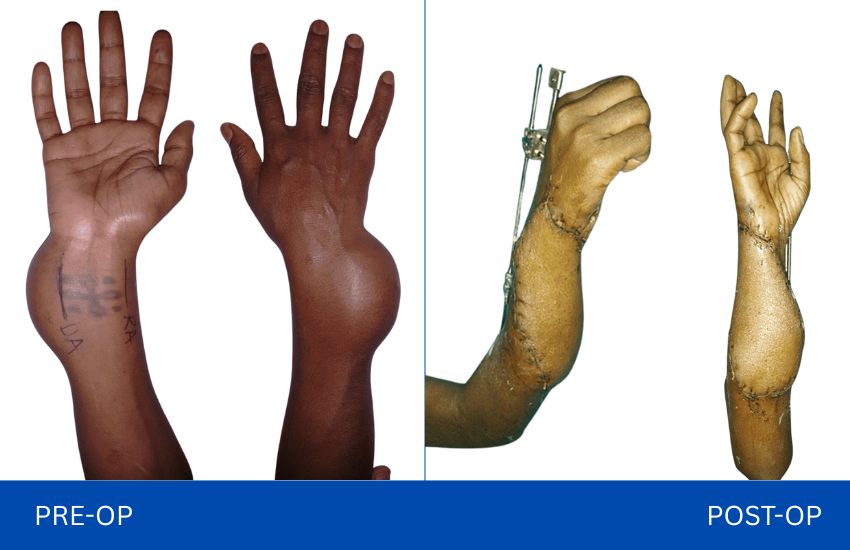
Trustindex verifies that the original source of the review is Google. Very well explained about sugary experience professional workPosted onTrustindex verifies that the original source of the review is Google. Dr Vinod Dubey is a very good doctor. He is knowledgeable, experienced and humble. Listens patiently to the problems and provides appropriate solution. His guidance and response towards patient and family members is truly very nice.Posted onTrustindex verifies that the original source of the review is Google. Dr. Vinod Dubey treats patients with kindness and empathy . He makes a significant difference in their overall experience, even during stressful times.He explains the procedure in a clear and understandable way.Posted onTrustindex verifies that the original source of the review is Google. Dr. Vinod Dubey is the best orthopaedic doctor who exemplifies what it means to be truly dedicated to patient care. His exemplary skills are matched only by his compassionate approach; he has a unique ability to explain complex surgical procedures in a way that comforts and reassures both patients and their families. What truly sets him apart, however, is his unwavering commitment to his patient's well-being, staying in touch through mobile communications until each individual is fully healed. His genuine concern is evident in every interaction, fostering a sense of trust and confidence. Dr. Dubey isn't just a physician; he is a beacon of hope and a source of inspiration for all fortunate enough to receive his care.Posted onTrustindex verifies that the original source of the review is Google. A very positive and clear doctor. Doesn't scare you unnecessarily and doesn't prescribe unnecessary medications. Listens carefully and understands.Posted onTrustindex verifies that the original source of the review is Google. Dr.Vinod Dubey was very kind and reassuring. He made me feel comfortable and at ease throughout the entire process.Posted onTrustindex verifies that the original source of the review is Google. Amazing experience Dr Vinod have very kind attitude Amazing explaining skills all the best for your professionalismPosted onTrustindex verifies that the original source of the review is Google. Best and very good orthopedic in dr.vinod dubey sir.... Takes good care of his patients 👍🙏🏻